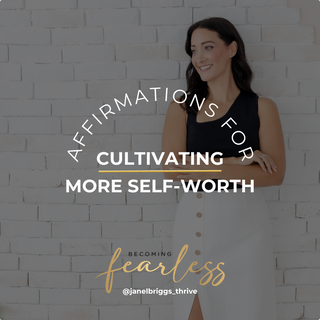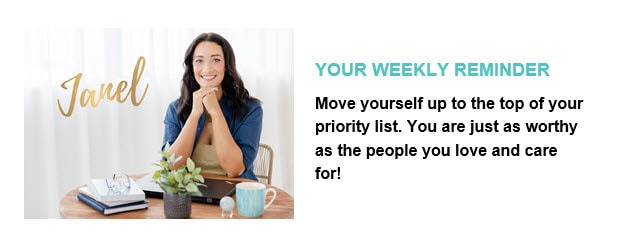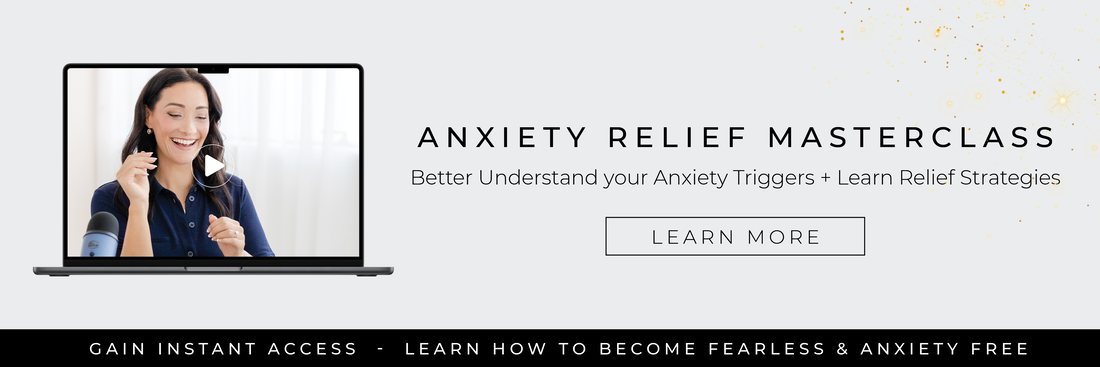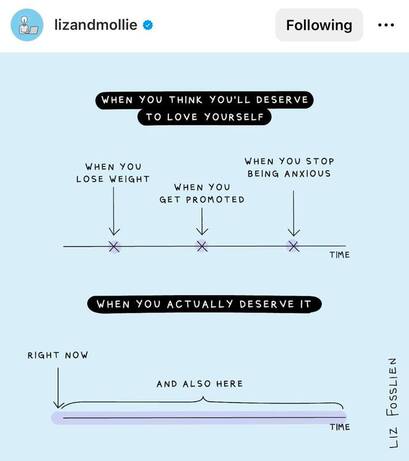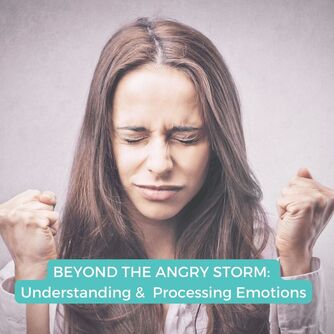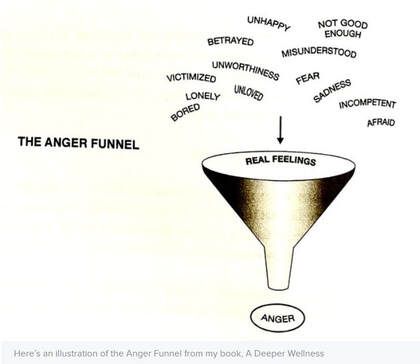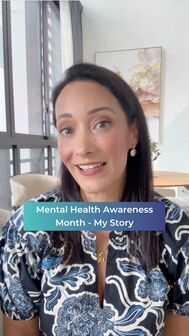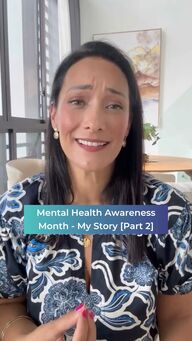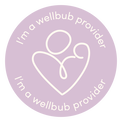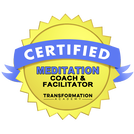AuthorJanel Briggs Categories
All
|
Back to Blog
Where Are You on the Priority List?4/3/2024 Here's a reflection for all the care-takers out there. The mothers, fur-mama's and women in relationships who spend most of their time caring and holding space for other people (whether it be your partner, children, family, or in your friendships). I want to ask you a question: Where are you on the priority list of your life? Recently, I had to ask myself this question. And it's VERY interesting what came up! Last week my husband and I decided to invest in private 1:1 coaching for our son (who is 10yo) for a sport he loves. This coaching would help him to build more confidence and fine tune his skills. I did my research, got a referral, and the quote came back at $200 for a number of sessions. It was literally a split-second decision - YES, let's do it! Within 24hrs the first session was set up. It was a "no-brainer" for us to spend $200 on our son's progression in this sport, his happiness is high on our priority list. On the flipside, I reflected on how I would have responded if the tables were turned a few years ago. I wondered how long it would have taken me to DECIDED to spend that same $200 on myself??Perhaps you could ask yourself the same thing? I can tell you, the decision would have taken wayyyy longer than 24hrs!! My mind would have been spinning thinking about all the justifications, the pro's and con's, in an attempt to ward off the overwhelming feeling of... GUILT. "I can't do that, I can't spend that much on myself... it's too much! I'll find another way. I'll get another quote. I'll wait to see if I REALLY NEED IT." You may have had a similar response or mindset too?I've had clients tell me they're kids are always dressed in the best clothes - yet they're still wearing those old shoes with the hole in them they bought 5 years ago! Or, they'll even pay for the finest food, toys and new beds for they're fur babies - yet they're still using a broken hair brush from 2012! Or, they won't even blink an eye at loaning a family member or friend money to support their idea or dream - yet won't do the same for themselves! WHY ARE WE LIKE THIS??Honestly, I believe it comes down to priority and self-value. Where we place ourselves on our own priority list matters. We forget about how important it is to invest in ourselves, in our own progression, healing and growth. I can tell you that in every decision I used to make - I was at the bottom of my priority list. Somehow in my role as the "responsible care-taker" in my immediate and extended family I thought else's needs came before mine. What I came to realise (after hitting a rock bottom with my mental health in 2017!) is that my needs and taking care of myself HAD to come FIRST. I needed to be a top priority in my life, instead of bottom of the list. If I couldn't make myself a priority and voice my needs - then how would anyone else ever make me a priority too? My last questions for you is this: How can you move yourself up the priority list this week
And if you have any questions or comments on how to get started - please reach out! About the Author: Janel Briggs is an Author, Mindset Coach, Practitioner of NLP and Timeline Therapy on a mission to support women across the world in overcoming their anxiety - personal insecurities and professional fears - to build unwavering confidence and self-belief. Mindset Coaching aims to help you fearlessly elevate your life and career, and more importantly the relationship you have with yourself! Connect with Janel on social media via Linkedin or Instagram.
0 Comments
read more
Back to Blog
Have you ever found yourself wishing that someone in your life would change, thinking it would make everything so much better? Many women experience stress, mental and emotional strain as a direct result of the other people's behaviours and actions. "IF ONLY he/she would do THIS, then everything would be OK!"
If they would just make "this change" then our life would greatly improve, and I could stop worrying. I know, how amazing would it be if the people we cared about would do what we want them to all the time!! But here's the sad truth: You can't force anyone to change.No matter how much you want it for them or love them, what you say or do for them... only they can DECIDE to make changes in their life. You cannot control their choices or outcomes. And all that pushing will ultimately cause you more resentment, heartache, stress and pain. Which I know is a super hard to hear. I've been there too. I have multiple people in my life today I would LOVE to see change their ways - but a decade of trying to change them broke me and I had to learn to let it go. I've also seen this frustration in a few of my past coaching clients' relationships. Where women who have journeyed on the path of self-discovery for themsleves now want the same for their partner, sibling, child, or partent. However, in attempting to push them to "see the light" and change their habits and behaviours, they've ended up causing themselves angst. This is what I can share: You can't change them, but you can be the inspiration for their change. Perhaps even a catalyst, by showing them what is possible. The decision for someone to change their life has to be their own, otherwise the transormation may be fleeting or won't stick long term. If you can't walk the path for them, what can you do? Continue to focus on your own personal growth and well-being. Be the light in their life. From my experience it takes patience, but in time you may notice small shifts and improvements both in your life and theirs. Here are 5 actions you can take:
True power is found in changing ourselves and inspiring the change we wish to see in others.  About the Author: Janel Briggs is a NLP and Timeline Therapy Practitioner on a mission to support women across Australia and Singapore in overcoming their professional anxieties, imposter syndrome, fears and insecurities to build unwavering confidence and self-belief. Mindset Coaching is about learning how to become fearless and level up your life and career! Connect with Janel on social media via Linkedin or Instagram.
Back to Blog
Finding motivation, and achieving a work-life balance are two topics that come up a lot in my coaching, and truthfully, it’s taken me a long (very long!) time to work out the formula to this problem. I don’t know if you can relate to this, but I’ve always been the sort of person who is “ALL IN 100%” on something. In my corporate career if I was working on a deadline, I was ALL IN, meaning motivation for ANYTHING else in my personal life got pushed to the bottom of the list. Later, owning my own business in the early years, if I was working on a project, or studying, or exploring a new idea, I was ALL IN and my motivation for healthy habits like exercise, eating well or sleep got skewed. And if I was focusing on living, enjoying personal time OFF work, travelling (or at times battling my own mental health journey) - then I was completely checked out and unmotivated for work, exercise or ANYTHING else! If you are an ALL IN kind of person, I want you to know that this isn’t necessarily a bad thing. There is no doubt, you’re a go getter and have probably achieve great outcomes! Until… you hit burnout, or the all or nothing mindset becomes an issue and other areas of your life begin to fall apart. What I realised is that my mind was stuck believing these three things: 1. TO FEEL THE BENEFITS OF THE ELUSIVE WORK-LIFE BALANCE MEANT MY TIME HAD TO BE DIVIDED IN EQUAL PARTS.So, in order to be “in balance” I thought I had to dedicate 1/3 of my time to work, 1/3 of my time to family, 1/3 of my time to personal every week. However, I call this elusive as this is an unrealistic goal. Nothing in life happens in equal parts! As humans we are cyclical beings. Every year our planet runs in seasons – no matter where you live there is a cycle and a change of season. Some countries like here in Asia has 2 seasons (dry/wet), where the majority of the rest of the world has 4 distinct seasons. It's planetary. As women our body runs in hormonal cycles, which means our energy levels will always be in flux. Science tells us that there are certain times within our hormonal cycle that are better for productivity, exercise, and rest. It’s biological. When I started to understand and accept that life also runs in cycles and seasons, I began to feel more motivation and my mind expand with self-compassion. Consistent MOTIVATION is cultivated from self-compassion, NOT GUILT. In the cycle of life there will be months where work takes priority, and weeks where family takes priority, and then other times of the year when your personal and health goals will take priority. Ask yourself this: What is the most important thing you need to be focusing on - right now this week or month? Now, if I am in a season of increased work or study, then it’s I allow myself to create boundaries around my energy and reduce plans, commitments or tasks in other areas of life. Similar for family and person life. The key is to:
Flowing within the cycle you are in, instead of berating yourself for not doing X or achieving X - means you’ll be more motivated. 2. I DIDN’T UNDERSTAND HABIT CHANGE AND BELIEVED I WAS UNMOTIVATEDLet’s talk about habits for a minute. We learn habits through our conditioning, or from repeated past experiences. Our habits become imprinted as patterns or programs within our nervous system and brand, stored within the 95% unconscious part of our mind. Once a habit (good or bad) is formed it occurs outside of our conscious awareness, and will continue operating the same program until a time where you bring the habit into your conscious awareness, and create a shift or change. We all get so frustrated with ourselves and inflict so much guilt whenever trying to break “bad habits”. But, I think the main point we forget is that if habits are learned from repeated past experiences – then we have to CONSISTENTLY repeat the experience, until which time the unconscious mind re-programs a new pattern. The first step to habit change is always AWARENESS. Becoming consciously aware so that you can see these patterns and "wake yourself up" to a new way of living. As yourself this: What habits in your life today are working for you, or against you? 3. I COULDN’T LOVE, BE PROUD AND APPRECIATE MYSELF UNTIL I HAD ACHIEVED (XYZ) There is nothing more un-motivating that trash talking yourself. I call GUILT the swampland of the soul – guilt will always keep you STUCK in the place you are in. If your mind is on a loop of dishing out rude comments, telling you how bad you are and filled with negative self-talk – then you are ALWAYS going to feel unmotivated to do the THING. No matter what the THING is! Self-acceptance, and taking action are how you are going to stay motivated and find your version of work-life balance. As yourself this: Wherever you are right now, love yourself for the cycle you are in. Photo credit: @lizandmollie There is nothing more un-motivating that trash talking yourself. I call GUILT the swampland of the soul – guilt will always keep you STUCK in the place you are in. If your mind is on a loop of dishing out rude comments, telling you how bad you are and filled with negative self-talk – then you are ALWAYS going to feel unmotivated to do the THING. No matter what the THING is! Self-acceptance, and taking action are how you are going to stay motivated and find your version of work-life balance. As yourself this: Wherever you are right now, love yourself for the cycle you are in. And if you don’t know where to start to bring kinder thoughts into your life… begin with reading, writing or speaking positive affirmations every day. Powerful "I am" and affirming statements. This healthy mindset habit that is going to help you to feel more motivated and shift your mindset to having more positive thoughts. >> If you're new to this concept I have a free guide to help you get started >> DOWNLOAD MY FREE AFFIRMATIONS LIST HERE THIS is the one habit you want to start, and even better - it's completely free. As you navigate and redefine what work-life balance looks like for you personally take this newfound awareness and embrace the cycle or season you are in. Whenever you find yourself off chart, you can always reset. But, remember the foundation of your motivation will be built on self-compassion, not guilt.  About the Author: Janel Briggs is a NLP and Timeline Therapy Practitioner on a mission to support women across Australia and Singapore in healing their professional anxieties, insecurities and imposter syndrome to build unwavering confidence and self-belief. The goal is to level up your life and career by learning how to to live fearless and anxiety free! Connect with Janel on social media via Linkedin or Instagram.
Back to Blog
We've all faced moments when emotions surge within us like an angry storm. Emotional outbursts, fiery and fierce in intensity take centre stage and knocks us off our center. Defensive barriers go up, words are said, and actions are taken that don't always leave us feeling good. What I've learned is that most of the time, it's not really about "the thing" that triggered the angry storm... is it?
Although those things are super ANNOYING ... they are just the tip of the iceberg, aren't they? It's MORE THAN that "one thing" presenting itself... it goes deeper than that. As a Mindset Coach it's my role to help YOU understand what is laying underneath those icy waters at the base of the iceberg. Where the anger is in fact fueling from. Anger itself is largely perceived as a secondary emotion that shows up when we feel we need to defend ourselves. Most often, it's about OUR NEEDS. What the anger is usually saying is ... when X happens (at home, work, in this relationship) I don't feel: valued. loved. appreciated. included. understood. seen. heard. special. Am I right?? LEARNING TO RELEASE & PROCESS ANGER. Internalised anger and resentment acts like poison in the body, and will eventually end up festering and eating away at the container it is in. The anger held deep down inside, has to come out sometime. It won't stay locked up forever. Sudden outbursts, conflicts and arguments begin to show up in other areas of your life for no aparent reason - not just with the person you originally felt angered by. So, what can you do to release and process before it festers? How to process emotions is sadly not a skill they teach us at school. I call it a skill because it'rs super important to learn and it takes awareness and practice to master. In my belief journaling the #1 way to process your emotions. Here's how you can get started: TUNE INTO THE REAL SOURCE OF YOUR ANGER: 1. What specifically is causing me to feel angry/irritated/frustrated? 2. Is it really about this one thing, or is it more than that? 3. How are my needs are not being met? 4. Where am I holding anger in my body? 5. Acknowledge the true feelings beneath your anger (acceptance) and ask - what do I need to do in order to be at peace? From here, you'll get clear on the next best course of action. J A N E L B R I G G S Thrive Mindset Coaching And, as always if you need more guidance please reach out via DM. Learn more about my 1:1 coacing programs here. TimeLine Therapy is an incredible tool for guiding you to release anger (and various other negative emotions) from it's core and get to the root of the problem.  About the Author: Janel Briggs is a NLP and Timeline Therapy Practitioner on a mission to support women across Australia and Singapore in healing their professional anxieties, insecurities and imposter syndrome to build unwavering confidence and self-belief. The goal is to level up your life and career by learning how to to live fearless and anxiety free! Connect with Janel on social media via Linkedin or Instagram.
Back to Blog
Have you ever found yourself seeking happiness through external validation? For years, I placed my happiness in the hands of others, constantly thinking that if certain people or circumstances aligned in a certain way, then I would finally be happy. I would catch myself saying things like, "If my parents, sister, husband, son, boss, colleague, or X did THIS, then I would be happy." I tied my happiness to achieving good grades, receiving recognition at work, earning a promotion, or even reaching specific milestones in my first business. My joy was dependent on external factors and the validation they provided. The problem was, and what I've realised through Mindset Coaching, is that MY long term happiness is an internal job... I am the only one that can change it or make it happen. Yes, the external factors could give me a temporary hit of happiness, BUT they could never give lasting contentment. Here's why: 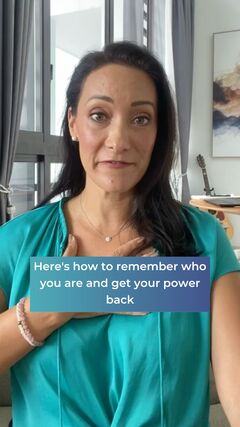 * We cannot control the external factors! Or other people's opinion of us * We cannot control how much or little someone loves us! Or HOW they specifically show us love The key was... I had to learn to know, love and accept MYSELF (all facets and parts of me) - in order to find my self-worth and experience a contentment that I never even knew existed. And the most amazing thing happened, when I stopped seeking external validation... I got my power back! In this video, I share the three crucial steps I took to break free from the cycle of seeking external validation and find true self-worth. Let me detail the 3 steps I took for you here: 1. Get clear on what is in your control and what isn'tI learned that I cannot control other people's actions, reactions, behaviours or even the way they love and treat me. I cannot control every single outcome, to every situation in my life. There will be uncertainty, there will be change, there will be things that do not always go my way. No matter how hard I work or try to make it different. I can only control what is within my circle - my mind, my body, my emotions and my behaviours. How I think, reaction and respond is up to me. 2. Start your day with a focus on self-careI started my day with a simple shift. In order to love myself fully and build self-worth I need to be the most important person in my world, my needs matter. My own self-care has to be a priority. I decided to wake up 15 mins earlier, to sit listening to a short 5 min guided meditation and I did 10 mins of journaling positive affirmations - something I had never done before! (If you are new to meditation I have a few to help get you started here) I spent 10 mins stretching and doing yoga, then ate a healthy nourishing breakfast and I listened to music while getting ready for work. I found this short 20-30mins of "me-time" first thing in the morning would calm and refocus my mind, before the chaos of the day began. When I filled my "needs cup" first, I found I wasn't looking to other people or external factors to fill my own needs. 3. Do one thing this week that brings you JOYI began a new habit where once a week I would do something that brough me joy - something just for me. Where I didn't have to do anything for anyone else. You see, I began to remember who I was outside of all the labels and hats I wore. Outside of the expectations, demands, stress and achievements of work. I started to love and reconnect to my inner child, the part of me that had gotten lost from putting all my happiness eggs outside my own basket. The part of me that was waiting for someone else to love, care and adore me, the way I wanted. It's an empowering feeling not waiting for someone to give you everything you need. I began to breathe easier and smile more often. Life felt less heavy and more enjoyable. I realise that it had to start with me, just like it has to start with you. And I am here to tell you - YOU can absolutely do it too. JB  About the Author: Janel Briggs is a NLP and Timeline Therapy Practitioner on a mission to support women across Australia and Singapore in healing their professional anxieties, insecurities and imposter syndrome to build unwavering confidence and self-belief. The goal is to level up your life and career by learning how to to live fearless and anxiety free! Connect with Janel on social media via Linkedin or Instagram.
Back to Blog
The most important day, is the day you decide your mental health is what matters most. Once you create this mindset shift, you'll find quite a few things get easier to manage:
I think so much of the time, as women, we feel like putting ourselves first is somehow selfish. But, it's not. It's actually healthy! How can you continue to give the world from an empty cup? I certainly couldn't. I was at the rock bottom of my priority list. My cup was so empty when I first recognised my mental health was a problem, I couldn't even muster the energy to get out of bed to feed my 3yo son. (Tap to listen to my story...) Your Mental Health Matters.My first (and biggest!) mindset shift was recognising that I was the only person who could actually change that situation. No one was coming to fix me. No one was coming to save me. I had to be the one who decided enough was enough, it was time for something to change. My wish is that I can empower you with 5 Simple Questions for Checking in on Your Mental Health so that your life doesn’t get to its lowest point, before you decide it’s time for something to change. Let's get into it: 1. How am I feeling emotionally right now? Checking in on your emotional state is an important step in assessing your mental health. Ask yourself: “How am I feeling in this moment?” “How long have I been feeling this way?” In times of external stress, we often deny our emotions, push them down and say, “I’ll deal with that later, I don’t have the time for this”. The funny thing about emotions is… we have to feel them, to heal them. Our emotions will continue to arise, in small or big ways, until we do. And at some stage they could even become super overwhelming - anxiety, anger, frustration, sadness – derailing you from every day life. 2. Am I taking care of my basic needs? Mental health is closely intertwined with our body’s wellbeing. Your body may begin to show symptoms of poor mental health before you even realise it consciously. Muscle tension, pain, feeling restless, headaches, insomnia, appetite changes are all key symptoms. Ask yourself: "Are you getting enough sleep, skipping meals, eating balanced meals, and engaging in regular exercise?" Neglecting your body’s basic needs can contribute to fatigue and the body’s stress. If you are not well slept and nourished, the mind has less resilience and finds it harder to process stress and emotions. 3. Am I managing stress effectively? Are you feeling overwhelmed and constantly under pressure?
Take a look at your coping mechanisms and self-care practices. Health stress management can be as simple as making time to move your body, meditate, journalling your thoughts or connecting with a friend – after a rough day. 4. How are my relationships influencing my mental health? Our relationships and the people in our life play a crucial role in our mental health. Ask yourself “Do you feel supported, valued, and respected?” “Do the people you spend time with uplift you, or drain you?” “Is this connection healthy for me right now”? Perhaps it’s time to create a healthy boundary and/or take some time away from the people who maybe feeling toxic right now, to recoup your energy. 5. Am I engaging in activities that bring me joy and fulfilment? When our external stress is at capacity, we forget about the simple act of doing things that bring us joy. If you are giving out all your energy to work, or other people’s problems – life is going to feel bleak really quickly. Ask yourself: “When was the last time I did something just for the fun of it?” “What is one thing that I could do, to bring more joy into my week?” If you’re looking for ideas for spending quality time with yourself, perhaps try one of these:
Remember, checking in on your mental health is an ongoing process. It’s essential to be honest with yourself and seek support if you notice any persistent concerns or challenges. There is no downside from ever working on your mindset or making some simple chances to your daily habits!  About the Author: Janel Briggs is a NLP and Timeline Therapy Practitioner on a mission to support women across Australia and Singapore in healing their professional anxieties, insecurities and imposter syndrome to build unwavering confidence and self-belief. The goal is to level up your life and career by learning how to to live fearless and anxiety free! Connect with Janel on social media via Linkedin or Instagram.
Back to Blog
Our minds are powerful and valuable, but they can be tricky to master when situational anxiety flares up. Some people find they thrive in new experiences and love meeting new people. If you are one of those people, my hat goes off to you! Like many others, embracing the new is something I have had to learn how to love. If you’ve ever tried to support a loved one with anxiety, you’ll know that new events and situations where they are standing an abyss of so many unknown’s and all the uncertainty their fear can be debilitating. When it begins to unfold in front of us it’s like the person is fighting a battle we can’t see. We don’t exactly know what to do, or how to fix it. We want our loved one to listen to reason and be OK. But their fear can be so convincing that they believe something (everything!) bad is going to happen. As a Mindset Coach I want to share with you a proactive tool to help you to help them deescalate the situation, using a concept called reframing fear to excitement. REFRAME FEAR - TO - EXCITEMENT This tool will help your loved one calm the mind and move forward feeling more excited and confident. 1. Listen for the core language of anxiety. Words can be your guide to understanding when a person’s fear starting to building. A tell-tale sign is: WHAT IF (a bad thing happens)? WHAT IF (a negative outcome)? WHAT IF (resistance language "I can't") OR when you hear the person worst case scenario planning. (plan A, B, C, D) 2. Immediately get them to stop and ask them to take a breath. This will halt the mind bringing their awareness back into the body, and circumvent the thought process. 3. Reframe their language. This may take a little practice but start by repeating their “What IF” statement BUT instead of a bad ending you insert a good, or happy ending for them. Shifting the mindset to a positive outcome. “What IF it all turns out better than you could imagine? 4. Make the “unknown” known. Anxiety often sparks due to a fear of the unknown or uncertainty. Ask yourself and affirm what is known. What do we know about this situation? What can we be certain of? What is within our control. 5. Help them to understand that anxiety and excitement have the same vibrational feeling in the body. “You must excited? Imagine all the cool people you are going to meet, and all the fun you will have. Those butterfly’s show up when you get excited right?” 6. Reaffirm the excitement and positive outcome. “I am excited for you! This is going to be so fun. You’ll have a great time. Everyone will love meeting you, you have so much to offer.” EXAMPLE OF THIS TECHNIQUE IN ACTION:Recently, my almost 10yo son joined a new activity after school in Singapore with a group of kids that were older than him on a subject he was lacking in confidence. Even though he originally said he wanted to do this activity, the day of the first group event was looming, and he was beginning to drag his heels saying he no longer wanted to go. I get it, kids making friends and meeting new people can be overwhelming. But as a family we decided a long time ago to always make an effort to give it 1 chance. Then we can decide after that whether we keep it or ditch it. Usually, we keep it – as we are not in the habit of letting our fear of the unknown rule our lives anymore. In the car on the way to there, I could see his mind start to tick, tick, tick. He began to ask:
Immediately I knew as soon as he said “WHAT IF” this was fear talking, not his rational mind. His core language trigger to me was the phrase “What IF” followed by a resistance word (don’t, can’t) and a negative outcome. I could hear his anxiety building and this was a great opportunity to help him de-escalate the fear. I asked him to stop right there and take a breath. We took a big deep breath together. I then proceeded to use the power of positive language to reframe and shift his mind from the most terrible outcome he is imaging, to a good ending. I repeated his “What IF” back to him with a positive outcome:
I then helped him to make the “unknown” known by focusing on a previous experience.
I reminded him that fear and excitement have the same vibrational feeling of alarm in the body. “You must be feeling those excited butterflies in your tummy again. Excited butterflies come when we do fun and exciting things right?” We walked into the building and up the escalator into the activity room, we took the long way to get there - moving the body is very helpful to release stress hormones. We arrived and he turned to me and said “Mum, I am excited about this 😊”. I said, “Yes buddy, I am excited for you too – this is going to be so much fun!”. And it was fun, he had a blast. We pre-framed it to be a good experience. I picked him up an hour later and he raved about the activity and everyone in it. He smashed the activity and cannot wait to go again. We pre-empted for a good ending and primed his mind for fun. He could now feel the excitement buzzing withing his body INSTEAD of the fear. The entire process took us 5 minutes. You can absolutely do this too! With children AND adults. It’s so easy to allow fear to jump into the driver seat and take control of new situations where there are so many unknowns. But every time we do, fear wins. It takes our mind away from the joy and the fun of living in the present moment. When we treat our loved ones who struggle with anxiety with a level of compassion that also takes positive action we can begin to help them to learn how to bring their own anxiety alarm down and enjoy new experiences for what they are, FUN. I hope these suggestions help you support a loved one with anxiety. If you have any questions or comments, please reach out. If you or someone you know is sick of struggling with their anxiety I run a program called “Freedom from Anxiety” for women who are ready to feel more carefree and confident in all areas of their life. To learn more about Janel's Freedom from Anxiety Program 1:1 Coaching head here.  About the Author: Janel Briggs is a NLP and Timeline Therapy Practitioner on a mission to support women across Australia and Singapore in healing their professional anxieties, insecurities and imposter syndrome to build unwavering confidence and self-belief. The goal is to level up your life and career by learning how to to live fearless and anxiety free! Connect with Janel on social media via Linkedin or Instagram.
Back to Blog
A loss of identity and a crash of confidence can feel confronting, challenging and weird (especially when living overseas!). But it is possible to overcome it and get back to you. When I moved to Singapore from Melbourne in 2022, this was not my first rodeo at what they call becoming a “Trailing Spouse”. In 2007, my then boyfriend (now husband!) took a promotion within our company and we moved to the USA for 2 years, our first experience with the expat life. The experience was all parts incredible AND super challenging for me. At the time we were young and free! Dual income with zero responsibilities (remember that?!)- no kids, pets or mortgage! We both worked hard and played hard. We travelled EVERYWHERE, said yes to opportunities, and totally lived it up the experience. But not long after moving cracks began to appear in my mindset and mental health. Trailing spouse depression and identity loss is absolutely a thing, that I had no idea about. It wasn't in the brochure! As a fiercely independent woman of 30 I had NEVER before “given up my life” and put my own aspirations (and needs!) on hold for someone else … who at that time hadn’t even “put a ring on it” yet, as Queen B would say.
I had all the negative feelings, while watching my partner THRIVE in his work and his personal friendships. As you can imagine, this caused a massive strain in our relationship. I had lost my sense of identity, my value and self-worth. I realise now I had put all my happiness eggs in his basket in the relationship, expecting him to be EVERYTHING for me 24/7. I wanted him to fix me! And make me happy! Of course, that pressure was too much. Thankfully, this was a wake up call for me, a turning point where I decided I needed to work on me. I enrolled in University and went back to study, and I enlisted the help of my first NLP Coach and began the journey of understanding who I am, and what I wanted. SIGNS YOU MIGHT BE EXPERIENCING IDENTITY LOSS:
Fast forward 13 years marriage, one child, becoming a Mindset Coach myself and surviving a pandemic - we decide to move to Singapore last year for expat #2. Suffice to say this time I was more prepared. I spent my first few months noticing common themes throughout conversation I was having with other expat women here in Singapore. Pandemic burnout, overwhelm from moving to Asia without a support network, and anxiety arising from uncertainty and changes in working visas were recurring topics at every coffee meet up I joined. I began hearing echoes of the SAME feelings that I used to have. So many women who had moved for their partners career were suffering from an identity loss leaving them with too much time to think and worry about finances in the future. Although very grateful to be in Singapore for the expat experience, frustrations were felt around being unable to work and the fact that they put their life and career on hold to support their other half. This was the catalyst for me deciding to expand my Mindset Coaching business in Singapore. To be able to help these women who are feeling this sense of identity loss. To support those struggling with stress anxiety and ever growing “imposter syndrome” that come with big life changes. New Life Phase A loss of identity can happen at any time it does not relate to age or gender. Experts reveal that it can be triggered when a person enters a new life phase that makes them question their basic understanding of self. Major events such as changing careers, becoming apparent, ending a long-term relationship or moving to a new place can be a catalyst for those uncomfortable feelings where you just feel a bit, well, off. Research shows that relocation is the third most stressful life event possible. On top of this according to an InterNations survey, it's the partner of the expat with the job who tends to be more susceptible to mental health issues such as depression and anxiety and who is negatively affected by the move. Typically, this is because they:
(Tick, tick, tick from my experience way back in 2007!) In the beginning, the expat partner tends to focus on everyone else's happiness and getting the family settled as the priority. Once the transition is complete and all the tasks are done the questions begin to arise what do I do now? What is my purpose here? Where do I fit in? Who am I? Feelings of resentment, frustration, sadness, and hopelessness can set in. How to Shift Your Mindset The first step to navigate any big life change where you're feeling this sense of identity lost is begin to shift your mindset and try to see this journey, or new phase of your life, as an opportunity for personal growth, development and expansion. Here are 6 key points to help you get started: 1. Choose Acceptance Finding a place of acceptance for the circumstances you're in right now is key. Remembering that if your mind is too far in the past thinking about all the things that you don't have, you will continue to feel stuck. If your mind is too far in the future, you'll continue to feel anxious by the uncertainty. Both thought processes make it harder to find happiness and be in the present moment. Do note that acceptance doesn't necessarily mean that you have to surrender or like the situation, but having a willingness to accept your circumstances will release the resistance in the mind that creates undue stress. 2. Create Routine Routine serves as an anchor. Predictable, repetitive routines are calming and help reduce stress and anxiety. Formulating a weekly schedule can help you feel more motivated, organised and productive. How you begin and end your day matters. Are you feeding your mind with positive information and thoughts when you wake up? Are you feeding your body with nourishing food of movement during the day? Are you getting enough sleep? 3. Embrace Exploration Use this time to discover more about who you are:
4. Connect Recognise that you're not alone in your feelings. It can feel daunting to build interpersonal relationships in a new country but connecting with others and sharing your emotions can be very healing. 5. Catch Self-Doubt When negative or unhelpful thoughts creep into your mind, questioning your value or worth, practice catching the thought before it spirals. Understand that not every thought you think is factual, and feelings are not facts. The mind has a protection mechanism that wants to keep you safe. Instead of believing and listening to unkind self-doubt call it out by asking, “Where is the evidence to support this?” or “What is causing me to feel this way?”. 6. Reframe Your Language The words we choose have a positive or negative effect on our mindset. If you believe it's hard and say to yourself “This is hard, I hate this, I don't want this” then it will no doubt be harder for you. Whereas if you use more empowering words such as “I can do this, I can overcome this challenge” the mind will be more open to change and all the possibilities. This article was originally published ANZA (The Australia & New Zealand Association) Magazine Singapore, March 2023 edition (pg 34-35).  About the Author: Janel Briggs is a NLP and Timeline Therapy Practitioner on a mission to support women across Australia and Singapore in healing their professional anxieties, insecurities and imposter syndrome to build unwavering confidence and self-belief. The goal is to level up your life and career by learning how to to live fearless and anxiety free! Connect with Janel on social media via Linkedin or Instagram.
Back to Blog
Holidays are supposed to be a time for joy and celebration. But for many people, the holidays can also be stressful and anxiety-inducing. The good news is that there are plenty of things you can do to manage your holiday stress and anxiety, so it doesn't prevent you from enjoying yourself with family and friends! 1. Keep Your Regular Routine Holiday stress can take over your life pretty easily, and if you're not careful, it can send you into an anxiety spin as we set aside all the good habits and things we know are good for us, while making time for the increased work and social commitments. Don't let the “busy” of the holidays season send you off-course though, your habits are what will keep you GROUNDED in the chaos. Keep up with your regular routine as much as possible. If you're used to going for a walk or exercising a few times a week, find a way to protect that “you time” at all costs. We always have to say no to something, don’t let it be the things you fill your energy cup with. And if you want to know how to stay feeling calm and more relaxed - on Christmas morning while everyone else sleeps in, get up early and go for a walk or run outside to clear your mind before the big day! 2. Practice Self-Care When it comes to self-care, there's no one size fits all approach. Be kind to yourself and listen to your body. If your calendar looks manic with events, block at least 1 or 2 nights at home with NO plans so you can pre-plan some downtime (you’ll thank me for it later!). Take time for yourself, eat well, and prioritise getting enough sleep—these things will help you feel more rested and energised during these hectic weeks leading up to end of year. Self-care is also being aware of mentally what you are consuming. If you find yourself staying up late watching TV to “zone out” just do yourself a favour and GO TO BED. Sleep is so much better for you than Netflix. Or if scrolling social media seeing everyone else’s perfectly curated Christmas tree’s and happy family snaps is making you anxious (or just plain sad and overwhelmed), consider taking a break socials. Wouldn’t it be amazing to hit the finish line well rested and some mental capacity to enjoy the festivities? 3. Make a Plan and Stay Flexible If you are a natural planner and organiser that’s great, my suggestion then is to stay flexible. Rigid black and white thinking and “only one way to do this” mentality has caused many a family argument during the holidays. If you can be flexible in your approach to everything, then you will be less likely to get stressed out by the things that come up. Aunty Janice could be right, she could well have the stuffing recipe out there – it doesn’t mean yours is any less - you of course could be right too. There are always multiple ways of doing a single thing. The person with the most flexibility in this situation is going to be the master of their own emotions and have the most fun. Who wants to be held back in judgement about something a simple as a stuffing recipe?! Not me. Janice – do your thing. 4. Don't Be Afraid to Say "No" You probably like to get involved in everything; you may even have FOMO at times when you don’t have a finger in every pie. But setting healthy boundaries for your time is VERY important at this time of year. We do not want to take any held resentments into the new year! So, don't let others pressure you into doing things you don't want to do. It is not your job to be everywhere at once and make everyone happy. Saying no is necessary and healthy! If you're feeling overwhelmed by all the holiday activities on your plate, then ask for help or simply decline an invitation altogether. It's okay, people can respect your decisions just as much as they expect others will respect theirs. 5. Delegate Like a Boss If you’re feeling overwhelmed, then it’s time to delegate. You do not have to do it all. Remember the saying “Many hands make light work”. People also actually like to help and feel needed, so delegate. Get everyone involved so you don’t feel overburdened by the work that needs to get done. Everyone knows you can do it all, but you may kill every last bit of energy you have in the process! 6. Let it Be If you find yourself stuck worrying and pre-empting about all the WHAT IFs of Christmas Day or holiday parties - who’s coming, whether everyone will get along, who will drink to much, or say too much, or start a difficult conversation. This thought process will only ever bring you stress and anxiety, as you cannot control the outcomes of other people. Let it be. What is going to happen will happen, no matter whether you spend 25 days worrying about what will happen. Instead, perhaps think about why you are spending time with the people who are important to you and what the highlights of this holiday season are going to be. And make a game plan, if something does go pear shaped at any event you can take some time out for yourself—go for a walk or listen to some music to regroup. 7. Focus on Gratitude One of the most effective ways to manage holiday anxiety is to focus on gratitude. By being grateful for what you already have, it helps your mind stay in the present moment instead of way out to far in the future stuck on worry. You will start feeling less stressed about things that don't matter. Gratitude helps you appreciate the good things in your life, so it's a great way of getting into a more positive mindset. Once you make it a habit, it'll become second nature and help you feel less stressed through any situation—even if something stressful does happen! 8. Know the Things You Can Control You can control your energy level, how much sleep you get, what you are eating and drinking, your mindset, your time and your own personal happiness. You cannot control anyone else, and you are also not 100% responsible for everyone else’s happiness. When things seem out of control, reassess and reassure yourself that you are doing your best and that this is enough. If it turns out that something did not go perfectly, then accept it and release it! 9. Remember to Have Fun Let the stress go and remember the holidays are for you to have fun too. Everything will get done that needs to get done. Connect, be present in the little moments and enjoy it. You deserve it, its been a big few years. What is it all for, if it’s not for having fun with the people we love? 10. Ask for Help Finally, don't be afraid to ask for help if you need it. If it’s not fun and everything is too much then please know you don’t have to go through this stress alone. Reach out to a friend, a family member or a professional for support. You deserve much love, peace and joy this time of year :) Wishing you all the best Janel Briggs  About the Author: Janel Briggs is a NLP and Timeline Therapy Practitioner on a mission to support women across Australia and Singapore in healing their professional anxieties, insecurities and imposter syndrome to build unwavering confidence and self-belief. The goal is to level up your life and career by learning how to to live fearless and anxiety free! Connect with Janel on social media via Linkedin or Instagram.
Back to Blog
 We all have limiting beliefs. They’re those pesky, damaging, and deeply ingrained thoughts that’ve been there for years. So long in fact that we’ve become convinced that they must be true. They’re not. Trust me. I’ve been there and come out the other side and want you too as well. So what are limiting beliefs? Where did them come from? And how can we get rid of them? Limiting beliefs reach across all aspects of your life. They’re thoughts or opinions that negatively impact your relationships, growth, and moving forward. They’re the little (or loud) voice saying… I’m not good enough, smart enough, pretty enough. I’m too loud, too much, too clumsy. I don’t deserve this. I could never do that. I know I’m going to fail. During my study of timeline therapy and Neuro Linguistics Programming (NLP) coaching certification, I came to understand, and now coach, that most of our core beliefs, or how we feel or what we think about ourselves, are language patterns and programming from childhood. They’re developed when we’re young from a particular moment (or moments) in time. Influenced by family, friends, culture, school, or society in general, someone said something, or you overheard something and, for better or for worse, you decided (consciously or unconsciously) to take on their opinion or label and carry it as your own. As your truth. You start believing what you heard. And over the months, years, and decades, the words become ingrained “truths” and limiting beliefs that end up adversely effecting and impacting your confidence, self-esteem, and self-belief. And as we humans tend to do, we remember these negatives much more than the positives, making so much easier to believe these un-truths. So now that we’ve talked about what limiting beliefs are and where they come from, let’s talk about two ways STOP and reverse these thought and beliefs about yourself. AFFIRM\NATIONS
Affirmation are essential in countering decades of negative programming, self-talk, and limiting beliefs. The three steps to using affirmations are personalisation, repetition, and trust. Personalisation Make sure your affirmations are specific and personalised to you. Start each statement with “I am…” and make sure they are ALWAYS positive. No won’ts, don’ts, or I’ll try’s. Think “I am brave” or “I am courageous”, not “I wish I was brave” or “I want to be courageous”. Repetition Repeat, repeat, repeat. Write your affirmation in your journal (you can get mine here). Record and listen to them on your phone. Put sticky notes up around your home. Write, read, and hear them often. Use the same affirmations day in and day out until you truly feel and believe each statement. Trust As difficult (and strange) as it might seem, you really do need to trust the affirmation process. While it won’t happen overnight, repeating your statements focuses the forces of energy to bring light to your desired result. Trust and believe good is coming your way and see the magic unfold. To help you get started, or continue on your affirmation journey, visit my website to download my free 150 Positive Affirmations list. DEEP (GUIDED) WORK While affirmations help you move forward, actually getting rid of limiting beliefs often takes deeper work. The key to this deep work however is doing it with guidance. Trying to “do the work” without guidance can be difficult, frustrating, and potentially upsetting. By having a safe space to discover your underlying limiting beliefs and be guided through a process to transform these into empowering new beliefs you become your own “inner mentor”, confident and able to go forward. So you’re not alone in the deeper work, I run a small and intimate “Silencing Your Inner Critic” group workshop every month. Together over zoom we work together for 2 hours from the comfort of your own home on:
Limiting beliefs are just that, limiting. While they’re familiar and known, they also tend to keep us surviving and not thriving. They keep us stuck in the past unable to make real progress forwards. Instead let’s get you thriving. Let’s get you working on reprograming your beliefs. Let me help you build unwavering self-belief and get rid of your limiting beliefs. If you haven’t already, be sure to subscribe to my blog and YouTube channel. Download your free 150 Positive Affirmation List or get on the wait list for my next Silencing Your Inner Critic online workshop so we can do the deep work together. |
|
Stay Connected
Subscribe and be the first to access new blog content news & updates. |

 RSS Feed
RSS Feed
